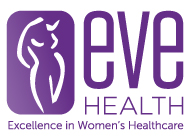Pregnant and getting well-meaning advice from everyone, but still confused about the facts? We bust some of the most common myths and misconceptions of pregnancy, so you know the truths and can enjoy your pregnancy.
You need to “eat for two”
Whilst energy requirements do increase in pregnancy, this does not mean eating double the amount. For most women, the extra energy requirements are equivalent to normal intake plus a tub of yogurt added. The amount of weight gain in pregnancy has an influence on many things. Too much weight gain increases the chance of developing diabetes and blood pressure in pregnancy and increases the chances of requiring a Caesarean Section. Too little weight gain may cause nutritional deficiencies for mum and preterm labour. An excellent pregnancy weight gain calculator which shows desirable weight gain ranges week to week and can be personalised for each woman’s starting weight and height can be accessed at https://www.calculator.net/pregnancy-weight-gain-calculator.html
It’s dangerous to exercise in pregnancy
Exercise for the large majority of pregnant women is great for mood, great for reducing back pain, cramps, swelling and constipation, great for improving sleep, and reducing excess weight gain and developing blood pressure and diabetes in pregnancy. 150 minutes per week of moderate physical activity is recommended to reap these rewards. This is exercise you can talk through, but not sing through! This might include brisk walking, stationary cycling, swimming and light weight training.
Beware that you may be more prone to overheating (hot yoga is not your friend whilst pregnant), overbalancing, (sorry, no rollerskating in late pregnancy), and feeling unwell when lying flat in later pregnancy (be careful during pilates). For those more adventurous mummas, the scuba diving and altitude climbing will need to stop until after baby is born!
Prenatal pelvic floor muscle training and protection for those continuing any high impact exercise whilst pregnant is also important in preventing a leaky bladder and pelvic floor symptoms.
You’ll have to go “au naturel”
Whilst it is unlikely that on their own, exposure to hair dyes will be truly harmful for most babies, in light of the current uncertainty about the additive risks of environmental chemical exposures in pregnancy it may be worthwhile limiting the use of these during pregnancy. There are some things you can do if you’re concerned.
- You could wait until the second trimester when the risk of chemicals harming the baby is lower
- Leaving dye on for the minimum time
- Opening the windows to avoid breathing in the chemicals
- Using highlights instead of block colours so that any chemicals are only applied to your hair, and not directly to your scalp.
Cosmetic physicians should advise that Botox, fillers and laser hair removal are not recommended in pregnancy as there is not enough evidence regarding their safety.
All of the above however can be considered reasonably safe during breastfeeding.
If you would like to read more about how to limit chemical exposures during pregnancy, follow this link: https://www.rcog.org.uk/globalassets/documents/guidelines/scientific-impact-papers/sip_37.pdf
Sex might hurt my baby
Sexual intercourse and orgasm do not increase the chance of preterm labour. It will not hurt your baby. Your obstetrician will generally advise avoiding intercourse if you have broken your waters or you have a placenta previa (low placenta) and you are greater than 20 weeks pregnant.
Baby moves less at the end of pregnancy and just prior to labour
From 20-22 weeks, mothers usually become aware of their baby’s movements. In the third trimester, babies do have periods of rest and sleep which mimic a newborn’s pattern. Each period of rest usually lasts for up to 40 minutes at a time. There is no reason to believe that babies move less in the last few weeks before birth. In a minority of women, this sign is all that is noticed prior to a baby being born stillborn. If you are concerned the movements are reduced, it is best not to delay contacting your obstetrician or the hospital.
I will definitely feel happier once the baby is born
Starting a family and becoming a parent is a very exciting experience. It does however come with a few challenges and a whole mix of emotions. Physical discomforts of pregnancy and delivery, career changes, financial pressures, conflicting parenting advice, and uncertainty mixed with sleeplessness and a crying baby can really have an impact on mood and relationships.
It is important to know that these frustrations and feelings are fairly common (up to 15% of new mums and 7% of new dads) and that there is a lot of support available. Eve runs a weekly Mother’s group to help support new mums and foster friendships between new parents. The Mater Mothers’ Parenting Support centre, Possums clinic, Centre of Perinatal Excellence (COPE) Online and Beyond Blue (guys, check out Dadvice!) have easy-to-access resources available. Self-referral is possible however your Obstetrician, GP or midwife can help you to navigate this if needed.
- Dadvice – https://healthyfamilies.beyondblue.org.au/pregnancy-and-new-parents/dadvice-for-new-dads
- Centre of Perinatal Excellence – http://www.cope.org.au
- Possums Online – https://possumsonline.com/
- Mater Mothers’ Parenting Support Centre – https://www.matermothers.org.au/services/mater-mothers-parenting-support-centre
Comments are closed.
